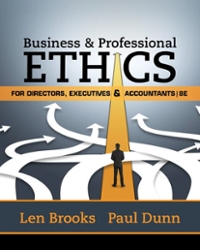Following the pattern of many other countries, Canada converted from domestic generally accepted accounting principles to International
Question:
Following the pattern of many other countries, Canada converted from domestic generally accepted accounting principles to International Financial Reporting Standards
(IFRS). The changeover occurred on January 1, 2011. As a result of the conversion to IFRS, the revenue recognition policies of many Canadian retail operators that offered customer reward programs had to change. Previously, there were no clear guidelines concerning loyalty programs, so many retailers recorded their sales at gross value rather than at net. For example, assume a customer makes purchases of
\($200\) and earns \($2\) of reward points that can be redeemed at a later date. The retailer would record revenue of \($200\) when the sale occurs and a further \($2\) of sales when the points are redeemed. Total revenue recorded would be \($202\). Under IFRS, this would not be an acceptable accounting policy. IFRS views the initial purchase as consisting of two elements:
the customer is buying both the goods and the rewards. So, under IFRS, the retailer would record revenue of \($198\) at the time of the sale and \($2\) of deferred revenue for the associated points. The deferred revenue would be realized when the \($2\) of points are redeemed. Total revenue would be $200.
In 2010, stock analyst Kathleen Wong at Veritas Investment Research Corp. argued that this change in revenue recognition would have a negative effect on the earnings of Shoppers Drug Mart, which offers its customers the Shoppers Optimum Program, one of the largest loyalty programs in Canada. Shoppers Drug Mart does not reveal the impact of its reward program, but Wong speculates that the Optimum Program was adding 1% to 3% to the company’s revenue. David Milstead contends that companies that chose the gross method were distorting their earnings.
“They opted for a method that pushed a shiny sales growth figure to the forefront, rather than one that would more accurately portray their real revenue picture.”
Questions:-
1. Do you think that the gross value method distorts earnings because it overstates revenue?
2. The total cash that the company receives is the same regardless of the method the company uses to report revenue. So, is one revenue recognition method just as good as any other?
Step by Step Answer:

Business And Professional Ethics
ISBN: 9781337514460
8th Edition
Authors: Leonard J Brooks, Paul Dunn





